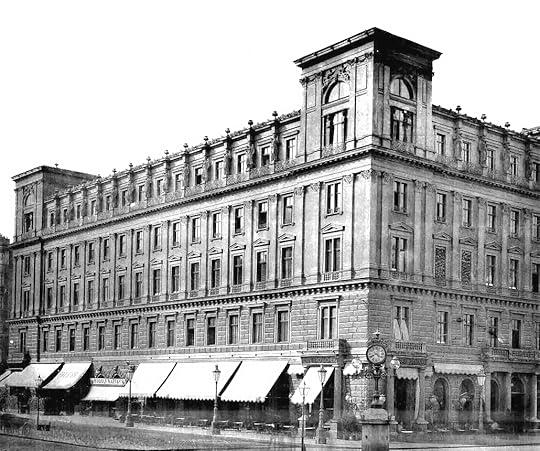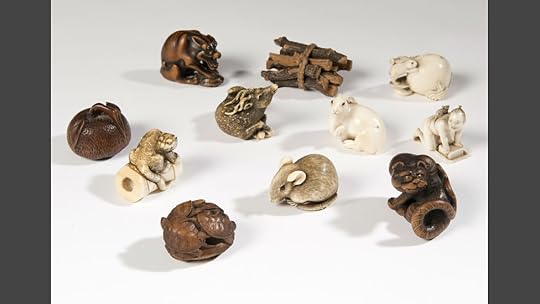What do you think?
Rate this book


354 pages, Paperback
First published August 31, 2010

...Charles Joachim Ephrussi had masterminded this expansion from Odessa in the 1850s. A true patriarch, he had two sons from his first marriage.... And then when he remarried...he continued producing children....
Odessa was a city within the Pale of Settlement, the area on the western borders of imperial Russia in which Jews were allowed to live. It was...a magnet for the impoverished Jewish shtetls of Galicia. It was also a city that doubled its population of Jews and Greeks and Russians every decade, a polyglot city full of speculation and traders, the docks full of intrigues and spies, a city on the make. Charles Joachim Ephrussi had transformed a small grain-trading business into a huge enterprise by cornering the market in buying wheat. He bought the grain from the middlemen who transported it on carts from the rich black soil of the Ukrainian wheat fields, the greatest wheat fields in the world, into the port of Odessa. Here the grain was stored in his warehouses before being exported across the Black Sea, up the Danube, across the Mediterranean.
By 1860 the family had become the greatest grain-exporters in the world....
The masterplan was to build on this network of contacts and finance huge capital projects. ...Ephrussi et Cie would change from being a very successful commodity trading house into an international finance house. It would become a bank. And each helpful deal struck...would be a step toward even greater respectability, a step further from those wagons of wheat creaking in from the Ukraine. (pp. 24-25)
It wasn't just Renoir who disliked the Jews. A string of financial scandals throughout the 1880s were laid at the door of the new Jewish financiers, and the Ephrussi family was a particular target.... The popular demagogue Edouard Drumont wrote in La France juive:
The audicity with which these men treat these enormous operations, which for them are just simple game parties, is incredible. In one session, Michel Ephrussi buys or sells oil or wheat worth ten or fifteen millions. No trouble....
...Money is seen to be a bagatelle to these Jewish money-men, implies Drumont, a plaything. It has no connection to the savings carefully taken into the bank on market day or hidden in the coffee pot on the mantlepiece.
It is a vivid image of covert power, of plotting. It has the intention of Degas's painting At the Bourse of a whispered conversation between hook-nosed, red-bearded financiers amongst the pillars. The Bourse and its players segue into the Temple and the moneychangers.
"Who shall stop these men from living then, who shall soon make France look like a wasteland then?...it is the speculator in foreign wheat, it is the Jew...the favorite of all the salons of the aristocratic quarter; it is Ephrussi, the chief of the Jewish band who speculate on wheat." Speculation, the making of money out of money, is seen as a particular Jewish sin.... (pp. 90-91)
“Ya no sé si este libro trata de mi familia, de la memoria o de mí, o si sigue siendo un libro sobre miniaturas japonesas.”Pues yo tampoco, pero qué importa, el libro me gustó y debo decir que soy el primer sorprendido de que así fuera.
“…al contrario que la caja de museo, la vitrina es para ser abierta. Y el momento en que la puerta de cristal se abre, el ojo elige, la mano se extiende y retira, es un momento de seducción, de encuentro eléctrico entre esa mano y el objeto.”






